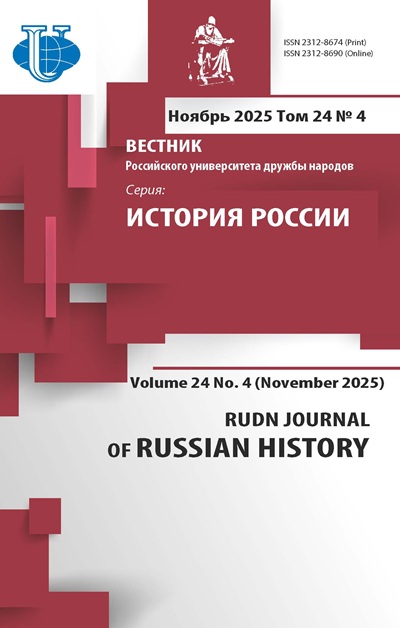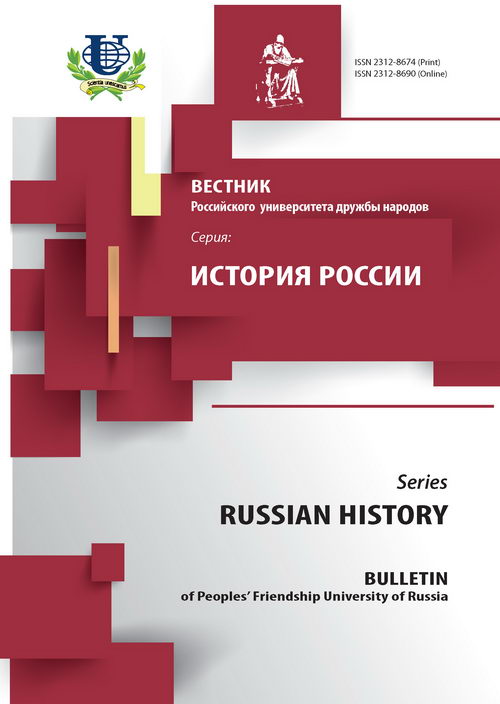ВОСПРИЯТИЕ КРЕСТЬЯНСКИМ СООБЩЕСТВОМ НЕМЕЦКИХ И АВСТРО-ВЕНГЕРСКИХ ВОЕННОПЛЕННЫХ В 1914 Г. (НА ПРИМЕРЕ КАЗАНСКОЙ ГУБЕРНИИ)
- Авторы: Абдрашитов ЭЕ1
-
Учреждения:
- Казанский юридический институт МВД России
- Выпуск: № 3 (2014)
- Страницы: 62-69
- Раздел: СТАТЬИ
- URL: https://journals.rudn.ru/russian-history/article/view/4037
- ID: 4037
Цитировать
Полный текст
Аннотация
В статье на основании архивных источников, периодических изданий и источников личного происхождения производится реконструкция образа «чужого», а также трансформация его в образ «врага» в сознании российских крестьян в 1914 г. Автор на примере анализа общественного дискурса крестьянского сообщества Казанской губернии проводит параллели с общероссийским универсумом и определяет специфические для указанного региона черты восприятия врага.
Об авторах
Э Е Абдрашитов
Казанский юридический институт МВД РоссииКафедра государственно-правовых дисциплин
Список литературы
- Нагорная О.С. Военный плен Первой мировой войны: традиции «прекрасной эпохи» и тенденции «тотальной войны» // Вестник РУДН. Серия «История России». - 2011. - № 1. - С. 120-132.
- Ниманов Б.И. Содержание иностранных военнопленных на территории России в годы Первой мировой войны // Вестник РУДН. Серия «История России». - 2009. - № 2. - С. 53-61.
- Сенявская Е.С. Противники России в войнах ХХ в. Эволюция «образа врага» в сознании армии и общества. - М., 2006.
- Сенявская Е.С. Народы Австро-Венгрии в Первой мировой войне глазами русского противника // Вестник РУДН. Серия «История России». - 2009. - № 4. - С. 111-127 и др.
- Военнопленные и сельское хозяйство // Казанский телеграф. - 1915. - 30 января. - № 6495.
- Работы для военнопленных // Казанская газета. - 1914. - № 37.
- Мы и наши пленные // Город Казань. - 1914. - 18 сентября.
- Национальный архив республики Татарстан (НА РТ). - Ф. 1. - Оп. 6. - Д. 1329. - Л. 4.
- НА РТ. - Ф. 1 - Оп. 6 - Д. 1073. - Л. 185.
- НА РТ. - Ф. 1 - Оп. 6 - Д. 1320 - Л. 33.
- Самара и война // Волжский день. - 1915. - 20 января. - № 15.
- Отдел редких рукописей и книг научной библиотеки Поволжского Федерального университета им. В.И. Ульянова-Ленина (ОРРК НБЛ). - Ф. 2530.
- Приехали австрийцы // Волжское слово. - 1915. - 7 февраля. - № 28.
- ОРРК НБЛ. - Ф. 2530.
Дополнительные файлы















